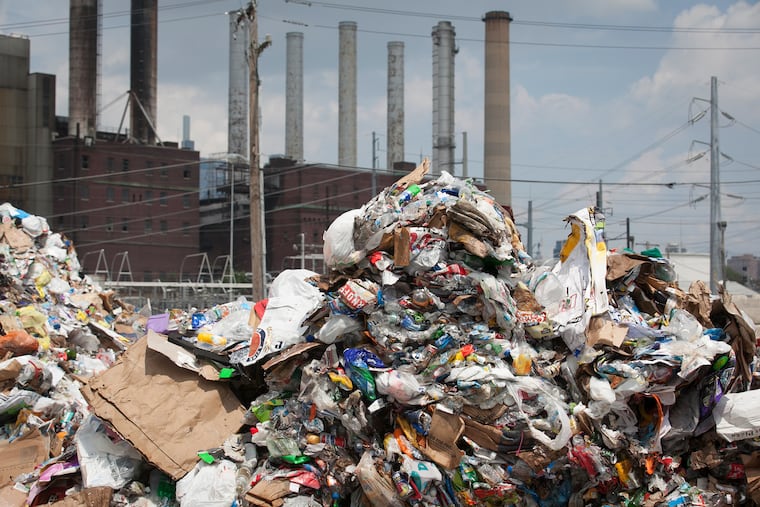Philadelphia should step up recycling | Editorial
Dumping more waste in landfills isn't the answer because it's expensive and it's awful for the environment.
That leaves Philadelphia with few high-impact ways to cut trash costs but to cut the waste stream and figure out ways to improve its programs.

Once a moneymaker, recycling is now a growing expense for the city.
Just five years ago, Philadelphia made $65 a ton for its approximately 111,000 tons of plastics, metals, and papers. Now, it's paying $38 a ton. That's because China, a key market for recyclables, has tightened its own environmental standards, insisting that loads be impossibly clean and even turning away our recyclables.
Dumping recyclables in landfills isn't the answer because it's expensive and terrible for the environment.
That leaves the city with few high-impact ways to reduce costs other than to cut the waste stream and figure out ways to improve its programs.
Reducing the waste stream can start with stepping up the city's commercial recycling program, which has been largely voluntary since its inception 24 years ago. In a story published last December, staff writers Justine McDaniel and Michaelle Bond found that nearly 80 percent, or 40,000, of the businesses in the city have not even submitted required recycling plans to the city and that the city does very little to monitor this important first step toward protecting the environment.
Enforcement is dismal. The city writes about 51 tickets a day to residents for various recycling infractions, but only writes about three a day to businesses. That's a shame because the city could offset costs from collecting fines. In the last nine years, the city collected $3.7 million from residents but only $108,000 from businesses.
Historically, businesses have seemed enthusiastic about the recycling program. When the city initiated its commercial recycling program in 1994, about 5,000 submitted recycling plans in the first week. When it reminded businesses of the program in 2009, about 8,000 sent in their plans. The city should build on that goodwill to help more businesses participate.
The Streets Department says it's tuning up the program, but it doesn't have a firm timeline for implementing efficiencies, which shows a lack of organization and accountability. Worse, the city doesn't routinely check how many businesses have submitted recycling plans, how many actually recycle and even how many have been hit with citations. Asked to update figures from our December story, the city said it couldn't. If the city isn't keeping its eye on the numbers and critical trends, how can it possibly improve the program?
On another front, the city can reduce its waste stream by charging a 5-cent fee on plastic bags. The ubiquitous bags are especially nettlesome to recycling processors because they clog machinery used to separate paper products and containers for resale.
Councilman Mark Squilla introduced a 5-cent-bag-fee bill in 2015, but it died for lack of interest among his colleagues. In New Jersey, the Legislature in June passed a bag fee, but Gov. Murphy hasn't signed it yet. Squilla should reintroduce his bill, and Murphy should sign the Jersey bag bill.
Yes, it stinks that recycling isn't a profit center anymore, but recycling keeps over 100,000 tons of waste out of landfills. According to federal statistics, that amount of waste recycled or composted is equal to eliminating pollution from 38 million cars.